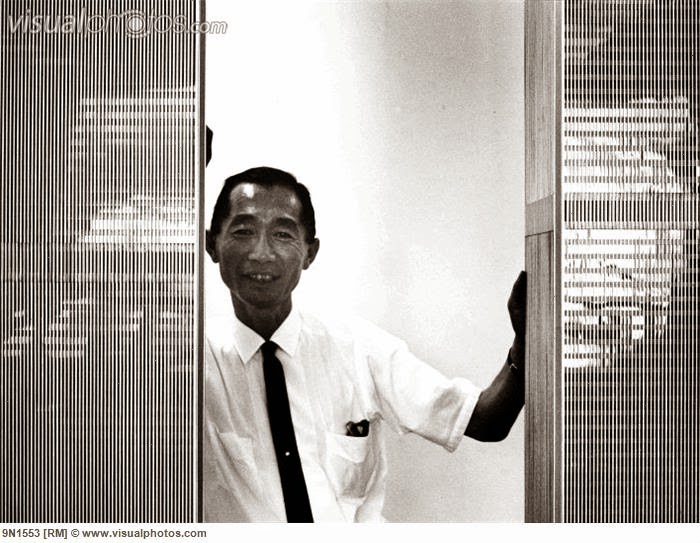“The World Trade Center is a living symbol of man’s dedication to world peace...beyond the compelling need to make this a monument to world peace, the World Trade Center should, because of its importance, become a representation of man’s belief in humanity, his need for individual dignity, his belief in the cooperation of men, and through this cooperation, his ability to find greatness.”
— Minuro Yamasaki
Of Japanese and American heritage, he was the
Chief Architect of the World Trade Center Complex
The above remarks were made at the opening ceremonies and dedication April 4, 1973
* * * * * * * *
“Despite the best that has been done by everyone--the gallant fighting of our military and naval forces, the diligence and assiduity of out servants of the State and the devoted service of our 100,000,000 people--the war situation has developed not necessarily to Japan's advantage . . . “
- Japanese Emperor Hirohito,
radio broadcast 14 August 1945, accepting the Potsdam Declaration, aka the Declaration Defining Terms for Japanese Surrender.
(Hirohito, raised in isolation in a palace, lacked Hitler’s oratory skills and his connection with ordinary people. On visiting Hiroshima after it had been obliterated by the first of two atomic bombs dropped on Japanese cities, Hirohito remarked “There seems to have been considerable damage here.”)
(I am grateful to my father in law, Noel,
for bringing the Hirohito quotes to my attention).
* * * * * * * *
”It is a terrible shame for me – I came back, still alive, without having won the war.”
- Soichi Yokoi
Soichi Yokoi (1915-1997) was a Japanese sergeant in the Imperial Japanese Army during World War 11.. He was among the last three Japanese holdouts to be found after the end of hostilities in 1945, discovered in the jungles of Guam on 24 January 1972, almost 28 years after US forces had regained control of the island in 1944. Although he had read dropped leaflets declaring that the war was over, he believed them to be false. Eventually found and subdued by two local fishermen, he was returned to Japan where he stated "It is with much embarrassment, but I have returned.” The remark became a popular saying in Japanese. After a whirlwind media tour of Japan, he married and settled down, becoming a popular television personality and an advocate of austere living.
* * * * * * * *
Exhausted, I sought
a country inn, but found
wisteria in bloom
Matsuo Basho, haiku
Basho (1644-1694) is today recognised as the greatest master of haiku poetry, with many of his works being reproduced on monuments and traditional sites in Japan.
* * * * * * * *
“No matter where I go in the world, although I can't speak any foreign language, I don't feel out of place. I think of earth as my home. If everyone thought this way, people might notice just how foolish international friction is and the would be put an end to it.”
- Akira Kurosawa
(1910-1998), Japanese film director, screenwriter, producer and editor who is today regarded as one of the most important and influential filmmakers in the history of cinema.
* * * * * * * * *






This comment has been removed by a blog administrator.
ReplyDelete